Queering Sexual Violence: Radical Voices from Within the Anti-Sexual Violence
By Jennifer Patterson
Queering Sexual Violence: Radical Voices from Within the Anti-Sexual Violence Movement is a forthcoming anthology being published by Magnus Books in 2014. The following are portions of the introduction to the book; some parts have been edited out for the purpose of this publication.
What is queering sexual violence? In a broad sense, it is a centering on that which is usually in the margins, be it gender, race, sexual identity, economic status, sex worker status because much of it is intersecting for many of us. It’s an acknowledgment of all of the bodies that experience violence rather than what I consider to be the more reductive path of working in the movement to end “violence against women”. To queer sexual violence means I ventured to dig deeper into the dominant narratives around sexual violence. I wanted to highlight those of us whose survivorhood doesn’t follow a predictable path. I wanted to shift what people consider “normal”.
None of us are immune to experiencing violence or perpetrating violence or to knowing of and not responding to violence. Sometimes we forget things. We forget how limiting and exclusionary binaries are: female/ male, survivor/ perpetrator, safe/ unsafe. We forget that our queer partners can abuse us. We forget that even if we aren’t directly experiencing it, the spaces we believe in can contribute to other forms of violence against different parts of our community. I’m thinking a lot about “safe spaces”, “community” and the violence we experience and then perpetuate in our own close circles. I’m thinking about the lessons we learn about violence outside our community, that we carry with us; lessons about who experiences it, who perpetuates it and who is allowed to heal from it. I came to working on this book when I left what I will refer to as “mainstream anti-sexual violence work”. I came to this book searching for queer radical perspectives on anti-sexual violence work. I came feeling excluded and erased. I came tired but confident that in the proper community, I could recommit to the work I love. And I came with a deep love for my community. I was intending to make the heterosexism and transphobia in the anti-violence non-profit industrial complex the focus of this book. But while it includes many conversations on that, this book became so much more than that; the 36 contributors in this anthology successfully turn norms, ideas and assumptions about sexual violence, survivorhood and community on its head.
In this anthology, not only are the contributors queer in their chosen identity, the experiences we have are vast and often complicated. The contributors move beyond a mainstream understanding of violence. We are active in our work to blur the binaries. We acknowledge that the survivor/ perpetrator binary could be conflicting with the reality of our own experience; that often times many of us have complicated histories as both survivor and perpetrator. We realize that rape, murder and sexual violence, and those of us who experience it, are all on a huge continuum. When we expect a multitude of people and experiences to fit the narrative of the heterosexual, cisgender, middle to upper class, white woman as the “perfect” survivor often centered in mainstream anti-sexual violence work, we are missing opportunities to organize in a more dynamic way. It is increasingly frustrating to see organizing around “violence against women” as the dominant solution to ending sexual violence because when I think about all the survivors I know or have engaged with over the years, not all of them are women. And not all of the “perpetrators” are men. Not even close.
*****
Studies have shown that people in LGBTQ relationships experience violence at the same rate as people in heterosexual relationships. We are not immune to a systemic culture of rape and violence simply because we are queer. In fact, we often experience violence because of who we are. LGBTQ people encounter violence outside our communities, abuse and violate each other, and experience state sanctioned and institutional violence. Our survival and the kinds of violence we face are further impacted by our race, ethnicity, disability, sex worker and economic status. But the amount of funding, research studies, non-profit prevention and advocacy work, direct care, organizing, and healing spaces centered on queer people is severely lacking. Non-profits and organizations are usually focused on and funded to address violence against (heterosexual, cisgender, middle to upper class, white) women. Beginning with the emergence of battered women shelters in the 1970’s, the new legislation that came soon after intended to protect survivors but the growth of what can now be considered a full-blown industry came with a heavy reliance on and investment in the state. This reliance had and continues to have a pretty detrimental effect; some communities look to the state for justice but many other communities have historically experienced and continue to experience an imbalanced amount of criminalization through the prison industrial complex. Though this sounds a bit bleak, there have been growing challenges to non-profit anti-sexual violence work that relies on and assumes the state to be a site of safety and justice rather than one of the most significant sites of sexual violence.
As a white (cisgender, queer) woman, in the organizing spaces I was in, I saw women who looked just like me taking up the most space, going over other peoples’ heads and making decisions that affected the larger group, all the while relying on racist, classist, homophobic and transphobic assumptions about sexual violence, survivors and those imagined to be committing forms of violence. I also felt how small I tried to make myself when I felt shutdown in these spaces, shifting away from my queerness, my survivorhood or my “radical” ideas.
This tight focus on what’s considered sexual violence has historical roots and has played out for decades not only in non-profits but activist spaces as well. The politics of respectability and assimilation within feminist, gay and lesbian, and anti- violence work have erased and pushed out activists for being too queer, too radical. Activists like Stonewall veteran Sylvia Rivera,  who actively and vocally spoke out about the violence, injustice and erasure she and her trans sisters experienced were quickly pushed aside in order for the gay rights agenda to appeal to a heterosexual majority.
who actively and vocally spoke out about the violence, injustice and erasure she and her trans sisters experienced were quickly pushed aside in order for the gay rights agenda to appeal to a heterosexual majority.
 In Sylvia’s speech at the 1973 Christopher Street Liberation Day, archived by Reina Gossett, we can witness one of the ways that organizers and activists participated in the exclusion of trans women, low-income queer, trans and gender non-conforming people, those in the sex trade and survivors experiencing criminalization from anti-sexual violence work. In the speech she asks the crowd that tries to boo her off the stage to remember “your gay brothers and your gay sisters in jail” saying:
In Sylvia’s speech at the 1973 Christopher Street Liberation Day, archived by Reina Gossett, we can witness one of the ways that organizers and activists participated in the exclusion of trans women, low-income queer, trans and gender non-conforming people, those in the sex trade and survivors experiencing criminalization from anti-sexual violence work. In the speech she asks the crowd that tries to boo her off the stage to remember “your gay brothers and your gay sisters in jail” saying:
They’re writing me every motherfucking week asking for your help and you don’t do a damn thing for them. Have you ever been beaten up and raped and jailed? Now think about it. They’ve been beaten up and raped and then have to spend much of their money in jail to get theirself home… I have been to jail. I have been beaten and raped many times…you want to tell me go and hide my tail between my legs. I will no longer put up with this shit. I have been beaten, I have had my nose broken, I have been thrown in jail, I have lost my job, I have lost my apartment for gay liberation and you all treat me this way?
In the speech, she also confirmed that women and lesbian groups were unreliable noting that trans women seeking services as women didn’t write the “women’s group” for help; instead they wrote Street Transgender Action Revolutionaries (STAR) the activist organization Sylvia began with Marsha P. Johnson. The booing, violence and dismissals that Sylvia experienced as she worked alongside the gay and lesbian community for our collective liberation is heartbreaking to witness.
The booing, violence and dismissals that Sylvia experienced as she worked alongside the gay and lesbian community for our collective liberation is heartbreaking to witness.
What Sylvia experiences on stage is a clear example of the ways assimilationist gay and lesbian activists excluded transgender women from the demand for equality, safety and resources. But this isn’t simply a look to the past without current relevancy; the pushing out of trans women, people in the sex trade, queer, trans and gender non-conforming people who are low-income and people who are incarcerated continues as the experiences and needs of some survivors are pushed to the front. There continues to be a decentralization of people navigating multiple oppressions. Knowing this history, it is no surprise that we currently organize within the same narrow confines of a mainstream narrative that only considers some survivors as worthy of respect, consideration, safety, protection and healing.
Once I realized all the myriad of ways we, as queer people, are shut out of mainstream anti-sexual violence narratives, organizing, conversations and activism, and was educated on the deep historical roots, it was all that I could see. The gaps are wide and I was left with so many questions: Where was the acknowledgment of those who fell outside of the rigid gender binary? Of the violence that gay men experience at the hands of partners or on the street? Where were the connections between the criminalization of queer people, people of color, and state violence? When were we going to acknowledge, on a large scale, that sexual violence is used as a tool of intimidation and control within the prison system? Where was the acknowledgment of trans womens’ vital role in the legacy of anti-violence work and feminism? Where was the rallying around sex workers who had few places to turn as the potential to be criminalized overshadowed the ability to be vocal about experiencing violence? When would mainstream activism and organizing centralize those of us that have historically been dismissed and erased? Who is allowed to seek justice and what is justice for our many varied communities? And those questions are simply the beginning.
The contributors to this book are a feral but wildly compassionate collection of writers, bartenders, professors, therapists, sex workers, healers, sex positive educators, organizers, musicians, bloggers, non-profit employees, filmmakers and rabble rousers. We celebrate the imperfection in our stories. Our strengths lie in our resiliency, our contradictions, the questions we ask ourselves and then the answers we demand from others. It’s in the way we hold ourselves accountable to something bigger than us. We are cunning crafters of something more whole and healing for ourselves, our partners, our communities and yes, even those that violate us. It’s the messy stories, the drunk stories, the ones complicated by mental health and a searching for wellness, the stories compounded by racism, classism, fatphobia, transmisogyny. We have our eyes and hearts fixed on something bigger: radical, inclusive, accountable prevention work and direct care, collective healing, and a release from a culture that shames, disbelieves, and erases our lived experiences. We believe that until it is understood that all genders experience and perpetuate violence, we will be working in only a small piece of the larger puzzle.
Collectively, we aren’t the white, cisgender, virginal, class privileged, English speaking, able-bodied survivors held up by the mainstream anti-sexual violence movement as legitimate survivors. Collectively, we are something entirely different; intellectually aggressive, queer, conflicted, messy and complicated. We are visionaries. Many of us are of color, transgender, disabled, and/ or poor and working class. We feel the way our identities impact our survival. We know what it means to live in the margins, to have our experiences challenged. And we are demanding more from a movement that impacts our very lives and communities.
This book elevates us, it disrupts the conversation, it re-centers on those frequently excluded by the laws, the non-profit industrial complex, the academic community and the organizing that is central to the mainstream anti-sexual violence work. But while this book challenges, it is also about profound healing and liberation as we actively choose this for ourselves and our communities everyday. Every person in this anthology is doing vital and radical work. We are filling in the gaps where systems, institutions, families, communities and partners have failed us. We are disrupting the mainstream survivor narrative. We are speaking our truths even when they aren’t welcomed. Or even asked for.
Through the work of 36 people, a space was created for us to dig into our roots, heal, resist and seek new forms of collective liberation, one untethered to that which has never served us. To get into the marrow of this work is to imagine that there is a better, safer community in which we all can thrive. You will read pieces by people who are challenging the mainstream narrative, pieces by people who experienced violence from those closest to them in their queer communities and relationships, those who use a critical lens to queer our understanding of violence. This book is rich with a wide number of experiences, perspectives and responses.
What we share are our disappointments, hearts, our successes, our experiences, our multiple identities and our ideas for moving into sustainable and transformative anti-sexual violence work. We don’t believe we have all the answers but are very ready to explore and further the work that impacts so many of us. We are excited for the conversations, the ways we can come together. This work wouldn’t be possible without the organizations, communities and activism that paved the way for this book, inspired us endlessly and transformed how we think, organize, work and love. In no particular order (and surely forgetting some), we are indebted to GenerationFIVE, 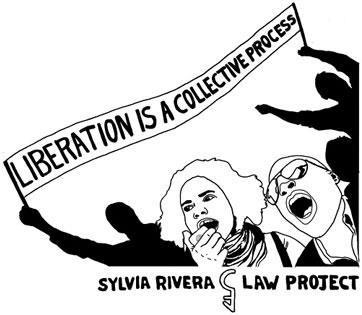 CARA, Incite! Women of Color Against Violence, the Sylvia Rivera Law Project, the Anti-Violence Project, The Revolution Starts at Home, UBUNTU, Philly’s Pissed and so many other incredible, resilient activists and survivors.
CARA, Incite! Women of Color Against Violence, the Sylvia Rivera Law Project, the Anti-Violence Project, The Revolution Starts at Home, UBUNTU, Philly’s Pissed and so many other incredible, resilient activists and survivors.
We are ready for our voices to be at the center of the movement.
*While so many people have lent me their ears, experience and so much more over the last four years, for the purpose of this introduction, I am incredibly appreciative of the support by Aleksei Wagner. The listening, editing, feedback and huge heart was critical in shaping this into its current form.
________________________________________________
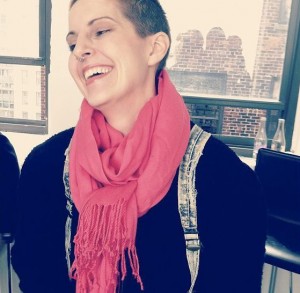 Jennifer Patterson is a queer survivor of multiple forms of violence. She is constantly motivated by how these cohabiting aspects of herself seem to be a point of confusion and contention for other people. Jennifer has participated in fundraising, was a volunteer rape crisis counselor at an emergency room in NYC and has advocated and organized on behalf of local anti-sexual violence organizations as well as individual survivors. She trained and worked as a group facilitator / community organizer for a community-based project before leaving to focus on the anthology. She believes in the power of working with productive anger and in creating disruption in the mainstream survivor narrative. Her work was included in “The Survivors Project: Telling the Truth About Life After Sexual Abuse”. She is the editor of an anthology titled “Queering Sexual Violence: Radical Voices from Within the Anti-Sexual Violence Movement” that will be published by Magnus Books in 2014. Jennifer is also in the middle of a grad program focusing on trauma, queer communities and embodied healing. When she isn’t reading or writing, she can be found making herbal remedies or trying to find a motorcycle ride.
Jennifer Patterson is a queer survivor of multiple forms of violence. She is constantly motivated by how these cohabiting aspects of herself seem to be a point of confusion and contention for other people. Jennifer has participated in fundraising, was a volunteer rape crisis counselor at an emergency room in NYC and has advocated and organized on behalf of local anti-sexual violence organizations as well as individual survivors. She trained and worked as a group facilitator / community organizer for a community-based project before leaving to focus on the anthology. She believes in the power of working with productive anger and in creating disruption in the mainstream survivor narrative. Her work was included in “The Survivors Project: Telling the Truth About Life After Sexual Abuse”. She is the editor of an anthology titled “Queering Sexual Violence: Radical Voices from Within the Anti-Sexual Violence Movement” that will be published by Magnus Books in 2014. Jennifer is also in the middle of a grad program focusing on trauma, queer communities and embodied healing. When she isn’t reading or writing, she can be found making herbal remedies or trying to find a motorcycle ride.


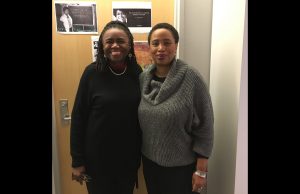
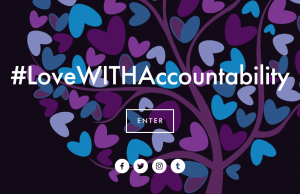
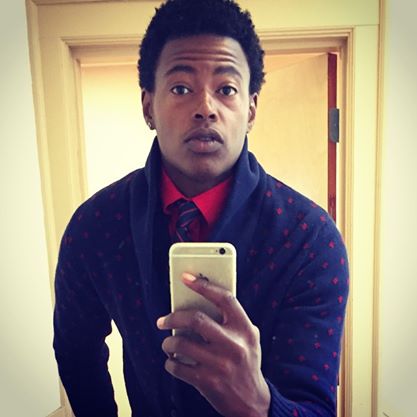
Pingback: Beyond the Beyond: Closing and Opening - The Feminist Wire | The Feminist Wire